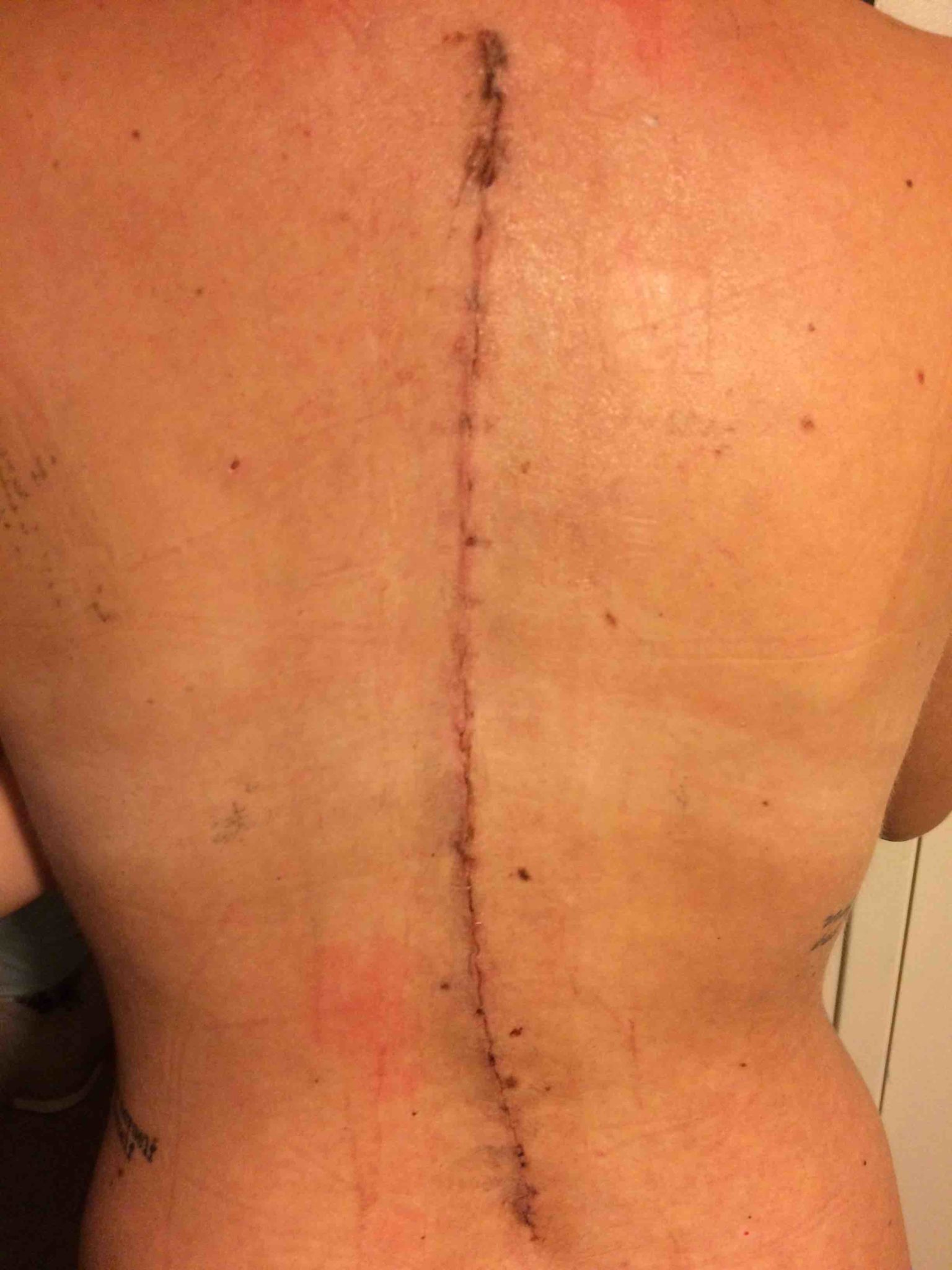Spinal Fusion Surgery in Munich
Search and Compare the Best Clinics and Doctors at the Lowest Prices for Spinal Fusion Surgery in Munich

Find the best clinics for Spinal Fusion Surgery in Munich
With Medijump you can browse 3 facilities offering Spinal Fusion Surgery procedures in Munich. The cheapest price available is $4,335 in Munich. And for the cheapest price globally, prices start from $100 in Malaysia.
Spinal Fusion Surgery in Germany
Price: $ 4,335
Spinal Fusion Surgery in Munich
Price: $ 4,335
Malaysia offers the best prices Worldwide
Price: $ 100
From 166 verified reviews
Martin xxx, 22 September 2020
Von Anfang bis Ende sehr freundliche und kompetente Mitarbeiter.
GermanyHealth, located in Mazaristrasse, Munich, Germany offers patients Spinal Fusion Surgery procedures among its total of 30 available procedures, across 6 different specialties. The cost of a Spinal Fusion Surgery procedure ranges from £12,244 to £19,421, whilst the national average price is approximately £7,823. All procedures and treatments are undertaken by the lead specialist at the Hospital, and they are not accredited by any recognized accreditations institutes
Surgical Experts Intl. - Health Service Germany, located in Mazaristrasse, Munich, Germany offers patients Spinal Fusion Surgery procedures among its total of 3 available procedures, across 2 different specialties. Currently, there's no pricing information for Spinal Fusion Surgery procedures at Surgical Experts Intl. - Health Service Germany, as all prices are available on request only, whilst the national average price is approximately $9,968. All procedures and treatments are undertaken by the lead specialist at the Hospital, and they are not accredited by any recognized accreditations institutes
WHY US?
At Medijump, we're making medical easy. You can search, compare, discuss, and book your medical all in one place. We open the door to the best medical providers worldwide, saving you time and energy along the way, and it's all for FREE, no hidden fees, and no price markups guaranteed. So what are you waiting for?

Free

Best Price

Widest Selection

Risk-Free
What you need to know about Spinal Fusion Surgery in Munich

Spinal fusion surgery is a surgical procedure to connect two or more vertebrae in your spine so that they can heal into a single bone. The goal of the procedure is to correct problems within the vertebrae (such as to restore stability to the spine or to eliminate painful motion) as the bones will not move like they used to and keep you from stretching nearby ligaments, nerves, and muscles. The surgery is often recommended for people with back pain caused by degenerative disk disease, scoliosis, fracture, tumors, spine infection, spondylolisthesis, and spinal stenosis.
What does a Spinal Fusion Surgery Procedure Involve?
The procedure is performed under general anesthetic, the surgery begins with an incision in your abdomen (anterior lumbar interbody fusion) or in your back directly over your spine (posterior fusion) to access your spine. Then, your doctor removes the joint or joints between the painful or damaged disks. After that, the vertebrae are fused together permanently and kept from moving pieces of bone from another part of your body or a bone bank (called a bone graft). Screws, rods, or metal plates may be used to help hold the vertebrae together.
How Long Should I Stay in Munich for a Spinal Fusion Surgery Procedure?
You are required to stay in the hospital for two to seven days following your spinal fusion surgery. You should aim to stay in Munich for about eight to ten more days for initial recovery, follow-up checkup, and for the stitches to be removed.
What's the Recovery Time for Spinal Fusion Surgery Procedures in Munich?
Recovery from spinal fusion surgery can take as long as six to twelve months. If your job is not physically demanding, you may be able to get back to work and some of your activities within 3-4 months, but make sure you consult your doctor about your recovery timeline to avoid any complications.
What sort of Aftercare is Required for Spinal Fusion Surgery Procedures in Munich?
For the first six months following the surgery, you need to avoid bending, twisting, and heavy lifting. You will have physical therapy where you will learn how to move, sit, stand, and walk properly. You will also need to attend follow-up appointments after six weeks, six months, a year, or two years following your surgery, but you can do this with your local doctor. After you recover, you will need to maintain a healthy lifestyle, such as having regular exercise and following a healthy diet.
What's the Success Rate of Spinal Fusion Surgery Procedures in Munich?
Spinal fusion surgery is generally safe and effective. Approximately 80% to 95% of people who have spinal fusion are satisfied with the result and about 70% said that their pain is significantly reduced. However, as with any surgery, there are some potential side effects and risks, such as bleeding, blood clots, poor wound healing, infection, injury to nerves or blood vessels in and around the spine, pseudoarthrosis, tissue rejection, and risk from anesthesia.
Are there Alternatives to Spinal Fusion Surgery Procedures in Munich?
There are some alternatives that you can consider, such as artificial disk replacement surgery, Intradiscal Electrothermal Therapy (IDET), and posterior dynamic stabilization. Make sure you discuss with your doctor the best options for you.
What Should You Expect Before and After the Procedure
Before spinal fusion surgery, you may suffer from fractures, instability, or deformities in the spine and you may experience back or neck pain that limits your movement and mobility. After the surgery, the problem in your spine should be treated and any symptoms should be relieved, allowing you to return to your normal life.
Whilst the information presented here has been accurately sourced and verified by a medical professional for its accuracy, it is still advised to consult with your doctor before pursuing a medical treatment at one of the listed medical providers
No Time?
Tell us what you're looking for and we'll reachout to the top clinics all at once
Enquire Now

Popular Procedures in Munich
Prices Start From $3,084

Prices Start From $2,120

Prices Start From $200

Recommended Medical Centers in Munich for Spinal Fusion Surgery

- Interpreter services
- Translation service
- Religious facilities
- Medical records transfer
- Medical travel insurance
- Health insurance coordination
- TV in the room
- Safe in the room
- Phone in the room
- Private rooms for patients available

- Interpreter services
- Translation service
- Religious facilities
- Medical records transfer
- Medical travel insurance
- Health insurance coordination
- TV in the room
- Safe in the room
- Phone in the room
- Private rooms for patients available

- Interpreter services
- Translation service
- Religious facilities
- Medical records transfer
- Medical travel insurance
- Health insurance coordination
- TV in the room
- Safe in the room
- Phone in the room
- Private rooms for patients available

- Interpreter services
- Translation service
- Religious facilities
- Medical records transfer
- Medical travel insurance
- Health insurance coordination
- TV in the room
- Safe in the room
- Phone in the room
- Private rooms for patients available

- Interpreter services
- Translation service
- Religious facilities
- Medical records transfer
- Medical travel insurance
- Health insurance coordination
- TV in the room
- Safe in the room
- Phone in the room
- Private rooms for patients available
Spinal Fusion Surgery in and around Munich
About Munich
Munich is the largest city in Southern Germany and it is one of a few places on earth where traditional and modern sit side by side, with its royal palaces and high-tech cars. Known as the ‘city of art and beer,’ this city is famous for its annual beer festival known as Oktoberfest. What most people do not realize is that Munich is also one of the world’s most famous medical tourism destination. Thanks to the famous German education system that creates skilled specialists, as well as state-of-the-art medical centers that invest in the latest medical technology, medical tourism in this city is a booming business that continues to grow at a fast rate. International patients usually travel to the city for quality rather than the price.
Popular Parts of Munich
Munich boasts a beautiful historic center, amazing German food, large parks and gardens, and beer halls packed with welcoming people. Visitors can explore numerous historical buildings, such as the Church of St. Peter and Frauenkirche. These two buildings have been around for centuries and are located in Munich’s Old Town. One of the most popular attractions in the city is Alte Pinakothek, which is an important art museum that houses over 800 works from the 14th – 18th centuries from German masters. Those who want to have a picnic, hike, simply relax or even try surfing should visit the English Garden. Other popular places include Dachau Concentration Camp, Nymphenburg Palace, BMW Museum, and Deutsches Museum.
Transport in Munich
The international airport of Munich is Munich Airport, which is the second-busiest airport in Germany in terms of passenger traffic. It serves international flights from many cities around the world, including Dubai, Bangkok, and Atlanta. Munich has a comprehensive network of public transportation that will take visitors virtually anywhere around the city. The most common transit system is the U-Bahn, which is a fast and easy underground subway system. Buses, trams, and commuter trains are also available and each has a vast network. Taxis are easy to hail, reliable, and safe. However, they are a bit pricey and Uber operates in Munich.
Visas in Munich
As a member of the Schengen Area, Germany allows citizens of several countries, including Australia, New Zealand, the US, and Poland to enter and stay in the country without a visa for up to 90 days. Citizens of other countries not listed in the visa-free entry need to obtain a visa to visit the country. Always check the requirements for Germany Visa Application before applying.
Weather in Munich
From June to August is the summer, which is a popular time to enjoy outdoor activities as the temperatures hover around 24°C. On very hot days, the temperatures can reach 30°C. Autumn (September – October) and spring (March-May) has pleasant weather with mild temperatures. Winter can be very cold, with temperatures dropping as low as -10°C.
Additional Info
- Local Currency: Euro (EUR) is the official currency. 1 EUR is approx. 1.12 USD.
- Money & Payments: ATMs are easy to find. Credit cards are not widely accepted and tipping is common practice.
- Local Language: The official language is German. Many people, particularly in tourism areas, understand English to some extent.
- Local Culture and Religion: Christianity is the largest religion in the city, followed by Islam, Buddhism, Hinduism, and Judaism.
- Public Holidays: Munich celebrates numerous holidays, including New Year’s Day and Christmas Day. It also hosts several festivals throughout the year, such as Oktoberfest in October.
Popular Searches
- Plastic Surgery in Thailand
- Dental Implants in Thailand
- Hair Transplant in Thailand
- Breast Augmentation Thailand
- Gastric Sleeve in Thailand
- Gender Reassignment Surgery in Thailand
- Laser Hair Removal in Bangkok
- Botox in Bangkok
- Dermatology in Bangkok
- Breast Augmentation in Bangkok
- Coolsculpting in Bangkok
- Veneers in Turkey
- Hair Transplant in Turkey
- Rhinoplasty in Turkey
- Stem Cell Therapy in Mexico
- Rhinoplasty in Mexico
- Liposuction in Mexico
- Coolsculpting in Tijuana
- Rhinoplasty in Korea
- Scar Removal in Korea
- Gastric Sleeve in Turkey
- Bone Marrow Transplant in India
- Invisalign in Malaysia
- Plastic Surgery in the Dominican Republic
- Tummy Tuck in the Dominican Republic
- Plastic and Cosmetic Surgery in Poland
- Rhinoplasty in Poland
- Hair Implant in Poland
- Dental Implants in Poland
- IVF in Turkey

